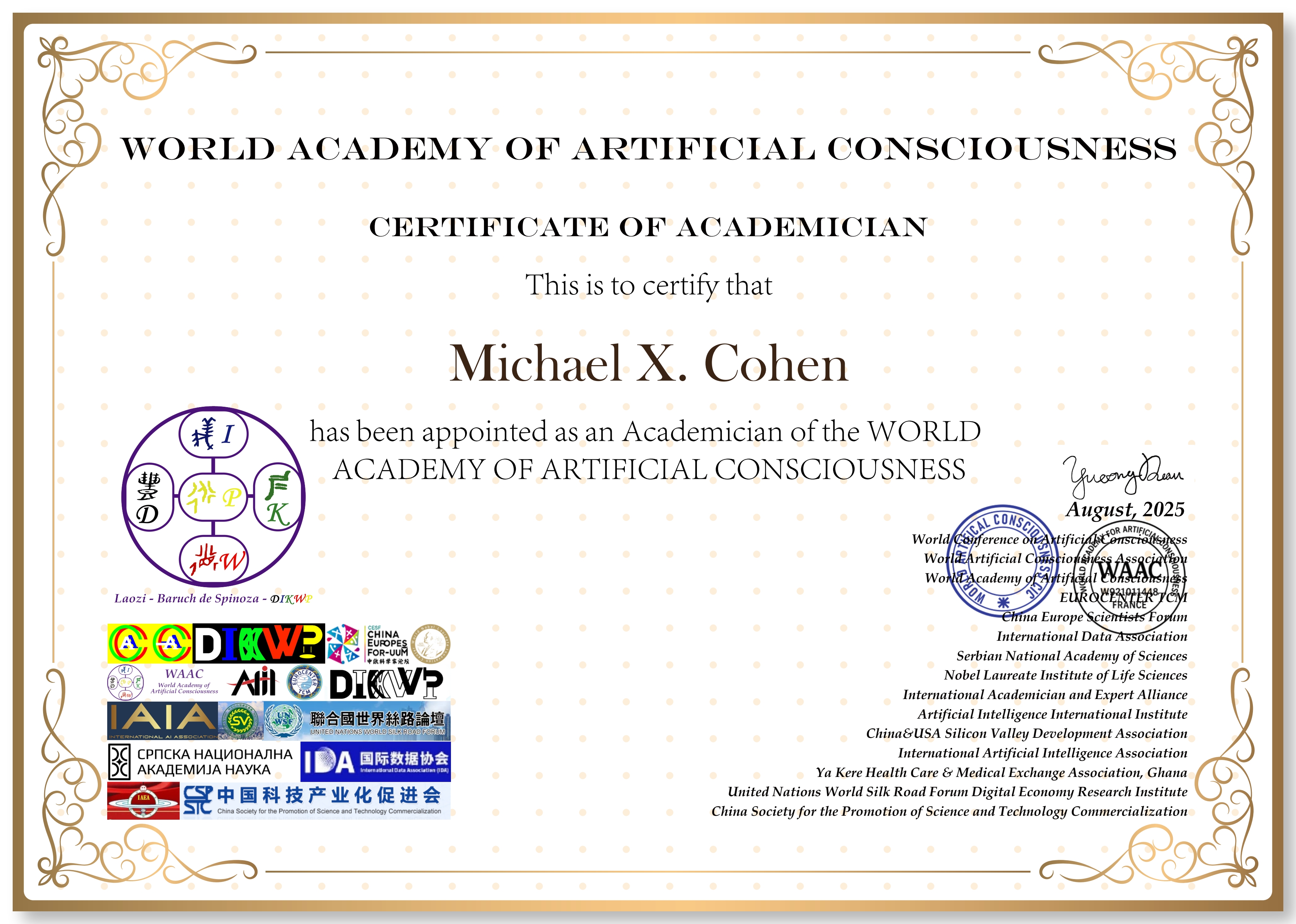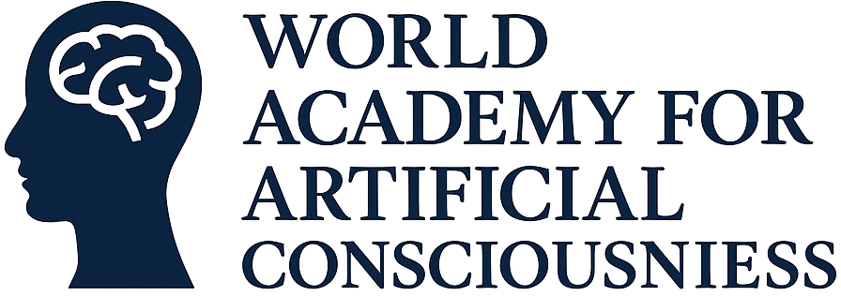
We are pleased to announce that Michael X. Cohen, neuroscientist at Radboud University Medical Center and the Donders Institute for Brain, Cognition and Behaviour, has been elected an Academician of the World Academy for Artificial Consciousness (WAAC) in recognition of his sustained contributions to neural oscillations and neural time-series analysis—especially advances in time–frequency methods, cross-frequency coupling, and empirically determining frequency-band boundaries.

Over many years, Professor Cohen has pursued a continuous research program on how oscillatory dynamics characterize information processing and help identify consciousness-related representations. His MIT Press monograph, Analyzing Neural Time Series Data, established a comprehensive framework for time–frequency and synchrony analyses of EEG/MEG/LFP. In Journal of Neurophysiology (2013), he reported the relationship between midfrontal theta and conflict monitoring/behavioral prediction, yielding quantifiable markers of reportable control and arousal regulation. In eLife (2017), he introduced a multichannel cross-frequency coupling method based on generalized eigen-decomposition (gedCFC), enabling the detection of integrative cross-frequency pathways in multichannel data. In Journal of Neuroscience Methods (2021), he further proposed gedBounds to derive individualized frequency-band boundaries in a data-driven manner. Complementing these methods, his authoritative review in Trends in Neurosciences (2017) clarified the sources, interpretations, and limits of EEG signals. Collectively, these contributions have expanded testable routes from oscillatory integration to metrics of consciousness.
- Global Collaboration and Academic Ecosystem
Academicians of the World Academy for Artificial Consciousness hail from institutions such as Harvard University, the Massachusetts Institute of Technology, the University of Cambridge, the University of California, the French Academy of Sciences, the University of Padua, the University of Queensland, Columbia University, and the University of Exeter. Honorary Academicians come from a wide range of countries and regions, including the United States, the United Kingdom, France, Germany, Italy, Sweden, Canada, Australia, Spain, and China. In addition, leading scientists from prominent research institutes and technology companies—such as Google, the Allen Institute for Brain Science, and ZEEKR—also participate.
- About WAAC

The World Academy for Artificial Consciousness (https://www.waac.ac/) is a global academic institution established in Paris in 2025. Its mission is to advance frontier research and international collaboration in artificial consciousness through the integration of science, technology, and philosophy. The Academy publishes open research, policy recommendations, evaluation standards, and more. The current President is Academician Yucong Duan, and the Secretary-General is Dr. Yingbo Li. The Honorary Academician List: On May 3, 2025, WAAC released its first batch of Top 100 Honorary Academicians, recognizing scholars who have made foundational or leading contributions to the theory of artificial consciousness.
